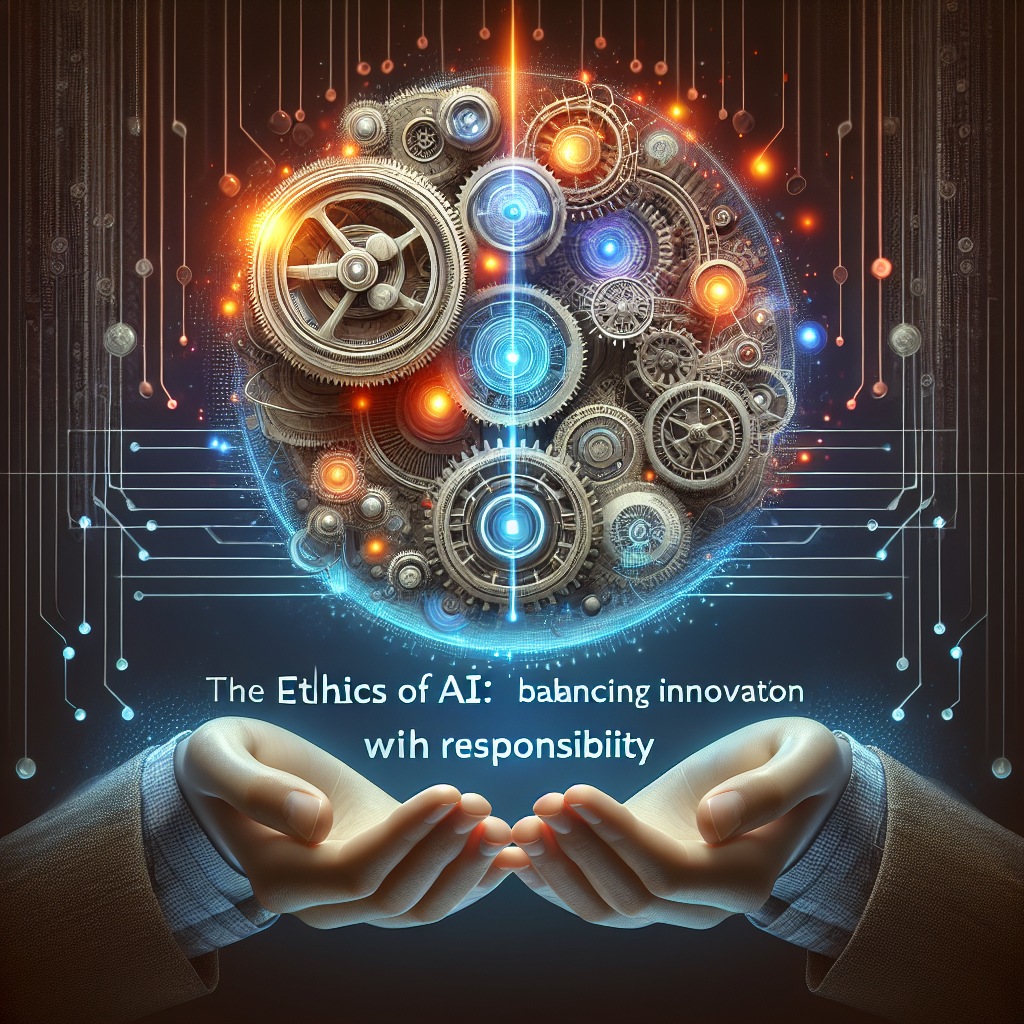The Ethics of AI: Navigating the Challenges of Artificial Intelligence
Artificial Intelligence (AI) is transforming various facets of human life— from automating routine tasks to driving cars and diagnosing medical conditions. However, as AI systems become more sophisticated and pervasive, the ethical implications of their deployment are drawing increasing scrutiny. Just as AI’s potential is vast, so too are the ethical challenges it presents. This article aims to explore the ethical considerations surrounding AI and propose ways to navigate these complexities.
The Ethical Landscape
- Bias and Fairness
AI systems learn from data, and if the data fed into these systems is biased, the outcomes will be biased as well. For example, facial recognition systems have been found to be less accurate in identifying people of color, leading to potential discrimination in law enforcement and other fields. Ensuring fairness and eliminating bias is a pressing ethical concern that requires careful attention to data collection and algorithm design.
- Transparency and Accountability
The "black box" nature of many AI systems, where the decision-making process is not transparent, raises significant ethical concerns. If an AI system makes a mistake or a harmful decision, pinpointing the cause and responsibility can be challenging. Developing methods to make AI decision-making more transparent and creating robust accountability frameworks is crucial.
- Privacy and Surveillance
AI-driven surveillance systems can severely infringe on personal privacy, leading to a societal state of constant observation. The ethical concerns around privacy are multifaceted, encompassing not only the use of surveillance but also data collection, storage, and potential abuse. Striking a balance between security and privacy remains an ongoing ethical dilemma.
- Autonomy and Control
As AI systems become more autonomous, questions about human control come to the forefront. Autonomous weapon systems, for instance, spark considerable debate about the morality of machines making life-or-death decisions. Establishing ethical guidelines to ensure that critical decision-making remains under human control is essential.
- Job Displacement and Economic Impact
AI’s potential to automate jobs could lead to significant displacement of workers across various industries. The ethical challenge here lies in managing the transition, ensuring that the benefits of automation are equitably distributed, and creating new opportunities for those affected.
Navigating the Ethical Challenges
- Interdisciplinary Collaboration
Addressing the ethical challenges of AI requires collaboration among technologists, ethicists, policymakers, sociologists, and other stakeholders. Creating interdisciplinary ethics committees can help guide the development and deployment of AI systems in a more balanced and inclusive manner.
- Regulation and Governance
Governments and international bodies need to play a proactive role in regulating AI. Developing comprehensive regulatory frameworks that address ethical concerns, promote transparency, and enforce accountability will be critical. International cooperation is also necessary to prevent regulatory arbitrage and ensure global standards.
- Ethical Design Principles
Incorporating ethical considerations into the design process is crucial. Ethical design principles, such as fairness, accountability, and transparency (FAT), should be integral to AI development. Regular audits and assessments can help identify and mitigate ethical risks at various stages of the AI lifecycle.
- Public Engagement and Advocacy
Engaging the public in discussions about AI ethics is vital for democratic accountability. Public awareness campaigns, educational programs, and open forums can help in building an informed citizenry that actively participates in shaping the ethical landscape of AI.
- Long-term Perspective
The rapid advancement of AI technology necessitates a long-term perspective. Ethical considerations should not be limited to immediate concerns but should also include potential future scenarios. Continuous monitoring, research, and foresight activities can help anticipate and address future ethical challenges.
Conclusion
The ethical implications of AI are multifaceted and complex, requiring nuanced and proactive approaches to navigate effectively. By fostering interdisciplinary collaboration, creating robust regulatory frameworks, integrating ethical design principles, engaging the public, and adopting a long-term perspective, we can harness the transformative potential of AI while minimizing its ethical risks. As we move forward, it is imperative that ethical considerations remain at the forefront of AI development and deployment to ensure a just and equitable future for all.














Leave feedback about this
You must be logged in to post a comment.